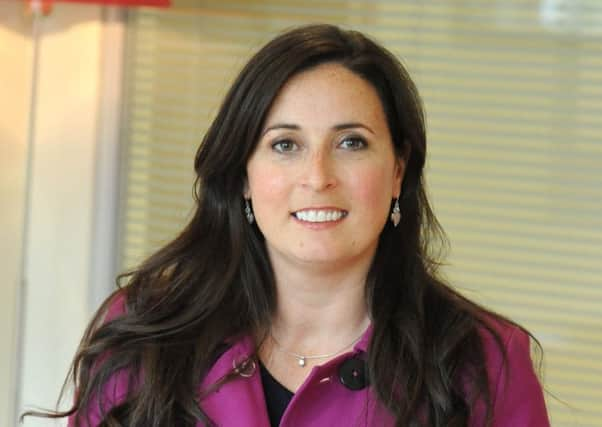Comment: As Michelle Obama says, girls must learn to fail


I expected the evening to be thought provoking, insightful and inspiring – so far, so predictable. But what I hadn’t predicted was how her comments would be perceived as controversial by some attendees.
Dame Katherine Grainger, GB’s most decorated female Olympian and chair of UK Sport, facilitated the discussion and the main themes of the night became clear: gender equality and empowering women. As a business owner and, like Michelle, the mother of two daughters, I would wholeheartedly support this. Having been involved with organisations like Changing the Chemistry and Scotland Women in Technology, both of which work tirelessly to encourage equality and diversity, I would have expected this theme to be unchallenged. Yet this focus on “girl power” surprisingly divided opinions. Several comments suggested that the discussion had gone too far, concentrating too much on female opportunities rather than opportunities for all. Interestingly, none of these observations were from women.
Advertisement
Hide AdAdvertisement
Hide AdThose most critical worked in sectors with a good gender balance. Such views were a surprise, especially as I work mainly in male-dominated industries like construction and technology, which are hugely supportive of gender equality. I’ve never considered this before, but perhaps the dearth of women brings a sharper focus on, and more support for, equality. Michelle spoke at length about encouraging women and girls to build their confidence and take risks, and importantly not be afraid to fail until you succeed. Men’s innate self-confidence was discussed, that “men just assume they know”, with more than a hint that this is still the case even if they don’t. Self-confidence is very important, particularly in relation to willingness to take risks, but in my experience this trait is much less frequently displayed by women across the board, including by those who are equally talented and skilled.
From an early age girls who speak up are labelled “bossy” and subtly but relentlessly persuaded that success doesn’t make you popular. What is the incentive to put your head above the parapet if the price is losing popularity along the way? The impact of this lasts a lifetime, yet those disagreeing with Michelle’s sentiments about confidence and on risk-taking seemed to have little awareness or appreciation of that.
We host a regular networking event featuring topical guest business speakers. This year, in our own small attempt to help address gender imbalance and showcase strong female role models, we decided to exclusively feature female speakers. However, even the most successful and talented women have been reluctant to speak. “Why would anyone want to hear from me?” has been a common response. In six years of hosting these events I have yet to hear the same question from a man. We owe it to our daughters, and indeed our sons, to change this.
Of course, a woman who did put herself forward only to be beaten by a less qualified man was Hillary Clinton – leaving the US still waiting for its first female president. Despite Dame Katherine’s encouragement, the former First Lady made it clear that a return to the Oval Office was absolutely not on her agenda.
It was indeed an insightful and inspiring discussion, but thought-provoking in an entirely different way than I had anticipated. I support encouragement for all, but if we really want to make the most of 100 per cent of Scotland’s talent, we need to wake up to how girls and boys are treated so differently from a very young age, and the impact of this on key attributes like confidence and appetite for risk. As Beverley Knight warned us that evening, shoulda woulda coulda are the last words of a fool.
Julie McLauchlan, managing director, Perceptive Communicators